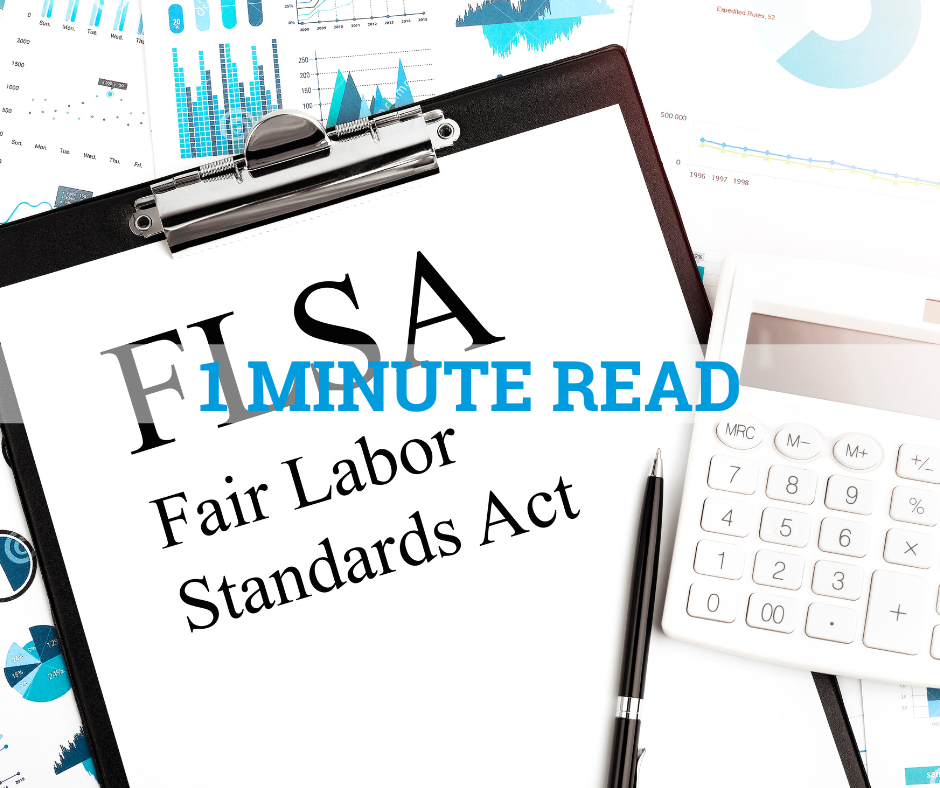
In the dynamic business landscape, the importance of fair labor practices cannot be overstated. Ensuring fair treatment and equitable compensation for a company’s employees is every business owner’s responsibility, regardless of company size or industry.
One crucial piece of legislation that ensures fairness and equality in the workplace is the Fair Labor Standards Act (FLSA). This law has been instrumental in protecting employees and employers, promoting economic stability, and cultivating a more equitable society. Continue reading to explore the significance of the FLSA for small business owners and why complying is critical.
Understanding The FLSA
The FLSA is intended to protect workers against unfair pay practices. The U.S. Department of Labor (DOL) enforces the FLSA and sets basic standards enforced by the Department’s Wage and Hour Division. These basic standards include the following:
- Minimum wage
- Overtime pay
- Recordkeeping
- Youth employment standards
While the FLSA was passed in 1938, it has seen numerous changes and is one of the most critical laws for employers to understand. Adhering to the FLSA ensures employers treat their employees fairly and ethically, promoting a harmonious work environment.
Ensuring fair wages
One of the foundations of the FLSA is the establishment of a federal minimum wage. By providing a baseline for compensation, the Act guarantees that employees receive a fair wage for their work, regardless of the size or nature of the business. This provision helps workers maintain a decent standard of living and contributes to a more satisfied and motivated workforce, ultimately benefiting business owners through increased productivity and reduced turnover.
Tori Moldovan, PHR, GMS' Client Services Manager, added, "Pay transparency has become a hot topic in the recruiting world. Over the last three years, several states and cities have passed laws requiring pay information to be provided, such as salary ranges, or even prohibiting employers from inquiring about an applicant's salary history. Employers need to keep apprised of laws requiring pay transparency, but also ensure their wages are competitive and non-discriminatory."
Overtime pay
The FLSA also sets overtime pay guidelines, ensuring that employees who work beyond the standard 40-hour workweek are adequately compensated for their additional time and effort. This provision protects employees from exploitation and encourages small business owners to carefully manage their workforce, fostering a healthy work-life balance and preventing burnout. By valuing the well-being of their employees, organizations can build a loyal and dedicated team committed to their company’s success.
Prohibiting child labor
The FLSA addresses child labor concerns by setting age limits and work-hour restrictions for young workers; the legislation sets the minimum age for employment at 14 years old and limits the number of hours worked by minors under the age of 16. For small business owners, complying with these regulations is not just a legal requirement but also a moral obligation. By refraining from employing underage workers and providing opportunities for education and skill development instead, small businesses contribute to the overall welfare of society and promote the growth of a competent and educated workforce.
Encouraging recordkeeping and compliance
Maintaining accurate records of employee hours, wages, and other employment-related information is essential under the FLSA. Although recordkeeping may seem tedious, it is a valuable tool for small business owners. By diligently documenting employee data, businesses can ensure compliance with the law, defend themselves against potential disputes or claims, and gain valuable insights into labor costs and productivity.
What Do You Do To Ensure You Remain Compliant With The FLSA?
The last thing any business owner wants is the DOL knocking on their door, bringing potential legal issues, penalties, and reputational damage. By diligently following FLSA requirements, you can proactively protect your business, foster a fair work environment, and establish a solid foundation for long-term success. However, we understand how challenging it can be to take on these responsibilities by yourself.
Have you considered partnering with a professional employer organization (PEO) like GMS? Our HR experts are here to help safeguard your organization. We take a proactive approach to address any non-compliance issues. Here are just a few ways our HR experts help your business:
- Properly classify exempt vs. non-exempt employees
- Ensure overtime is being recorded and properly paid
- Travel time pay requirements are compliant
- Tipped employee/tip credit compliance
- Minor labor law compliance
- Independent contractor (1099) evaluation
- Implement state-specific pay laws
Protect your business from unwanted disruptions and let GMS be your trusted partner. Contact us today.